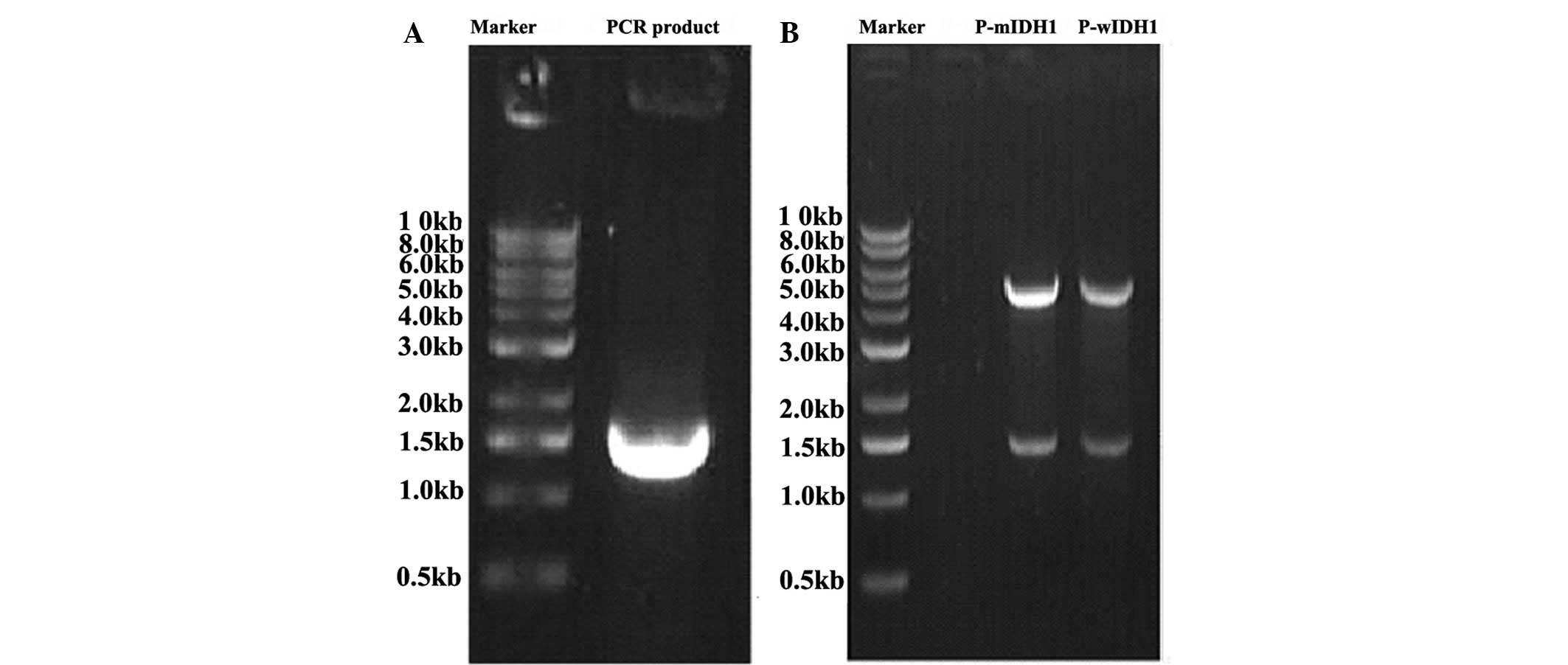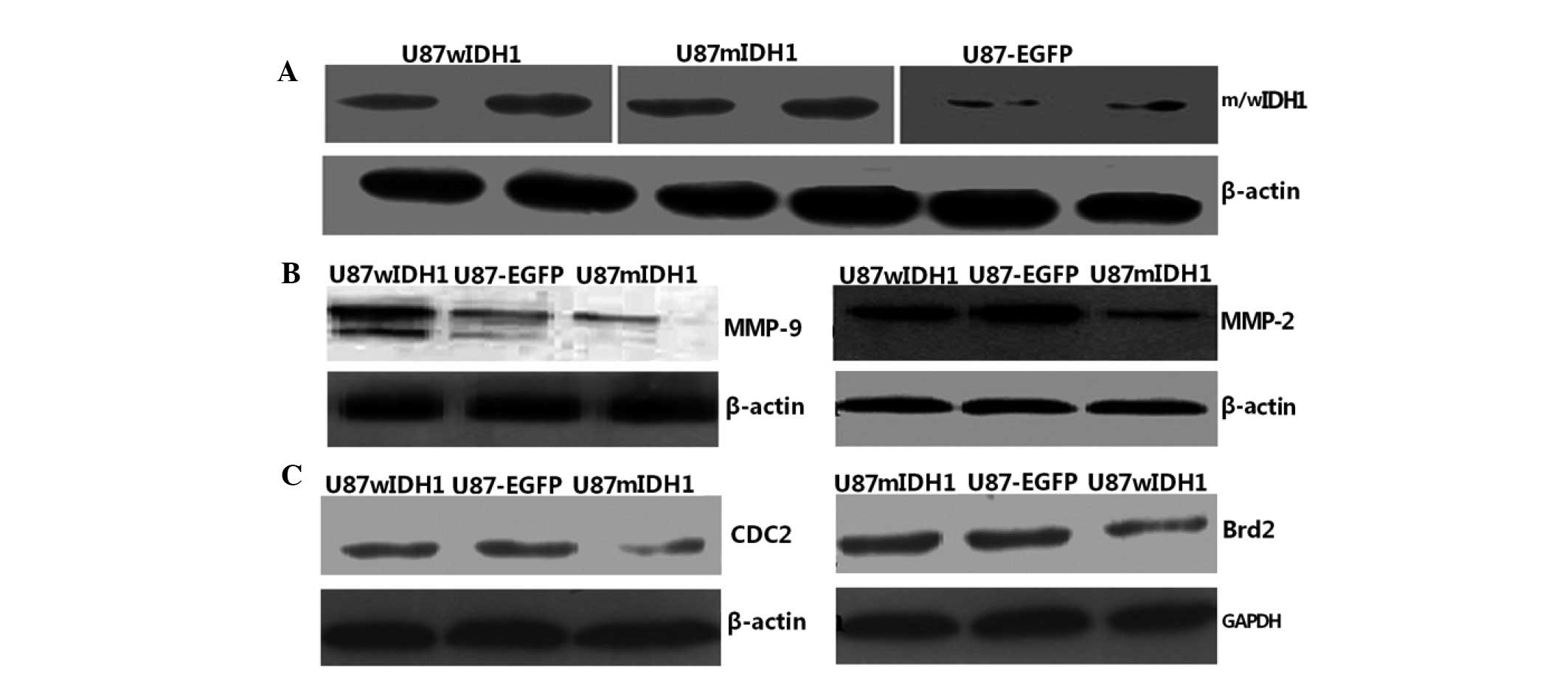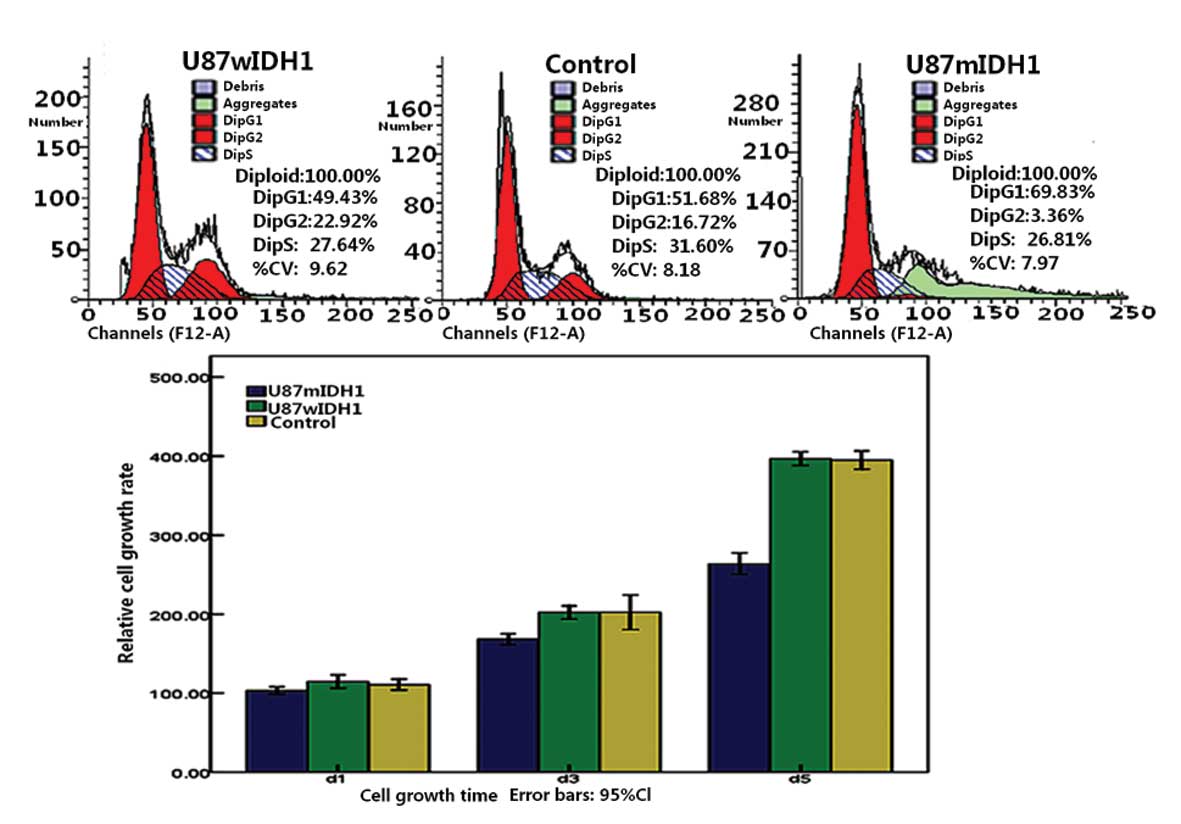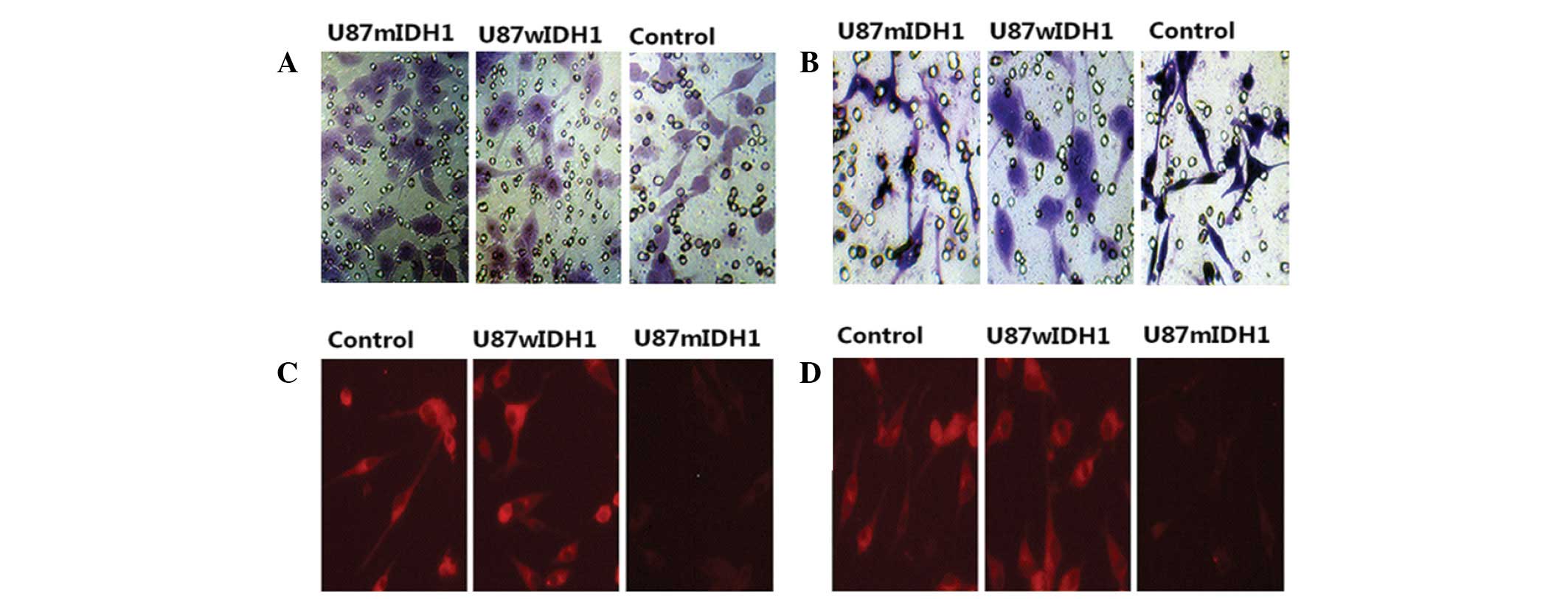|
1
|
Wakabayashi T: Clinical trial updates for
malignant brain tumors. Rinsho Shinkeigaku. 51:853–856. 2011.(In
Japanese).
|
|
2
|
Ostrom QT, Gittleman H, Farah P, Ondracek
A, Chen Y, Wolinsky Y, Stroup NE, Kruchko C and Barnholtz-Sloan JS:
CBTRUS statistical report: primary brain and central nervous system
tumors diagnosed in the United States in 2006–2010. Neuro Oncol.
15(Suppl 2): 1–56. 2013.PubMed/NCBI
|
|
3
|
Ohgaki H: Epidemiology of brain tumors.
Methods Mol Biol. 472:323–342. 2009. View Article : Google Scholar : PubMed/NCBI
|
|
4
|
Combs SE, Gutwein S, Schulz-Ertner D, van
Kampen M, Thilmann C, Edler L, et al: Temozolomide combined with
irradiation as postoperative treatment of primary glioblastoma
multiforme. Phase I/II study. Strahlenther Onkol. 181:372–377.
2005. View Article : Google Scholar
|
|
5
|
Wen PY and Kesari S: Malignant gliomas in
adults. N Engl J Med. 359:492–507. 2008. View Article : Google Scholar : PubMed/NCBI
|
|
6
|
Onishi M, Ichikawa T, Kurozumi K and Date
I: Angiogenesis and invasion in glioma. Brain Tumor Pathol.
28:13–24. 2011. View Article : Google Scholar : PubMed/NCBI
|
|
7
|
Parsons DW, Jones S, Zhang X, Lin JC,
Leary RJ, Angenendt P, Mankoo P, Carter H, Siu IM, Gallia GL, et
al: An integrated genomic analysis of human glioblastoma
multiforme. Science. 321:1807–1812. 2008. View Article : Google Scholar : PubMed/NCBI
|
|
8
|
Hathaway JA and Atkinson DE: The effect of
adenylic acid on yeast nicotinamide adenine dinucleotide isocitrate
dehydrogenase, a possible control mechanism. J Biol Chem.
238:2875–2881. 1963.
|
|
9
|
Barnes LD, McGuire JJ and Atkinson DE:
Yeast diphosphopyridine nucleotide specific isocitrate
dehydrogenase. Regulation of activity and unidirectional catalysis.
Biochemistry. 11:4322–4329. 1972. View Article : Google Scholar
|
|
10
|
Dang L, White DW, Gross S, Bennett BD,
Bittinger MA, Driggers EM, Fantin VR, Jang HG, Jin S, Keenan MC, et
al: Cancer-associated IDH1 mutations produce 2-hydroxyglutarate.
Nature. 462:739–744. 2009. View Article : Google Scholar : PubMed/NCBI
|
|
11
|
Geer BW, Kamiak SN, Kidd KR, Nishimura RA
and Yemm SJ: Regulation of the oxidative NADP-enzyme tissue levels
in Drosophila melanogaster. I. Modulation by dietary
carbohydrate and lipid. J Exp Zool. 195:15–32. 1976. View Article : Google Scholar
|
|
12
|
Wilton AN, Laurie-Ahlberg CC, Emigh TH and
Curtsinger JW: Naturally occurring enzyme activity variation in
Drosophila melanogaster. II. Relationships among enzymes.
Genetics. 102:207–221. 1982.PubMed/NCBI
|
|
13
|
Aghili M, Zahedi F and Rafiee E:
Hydroxyglutaric aciduria and malignant brain tumor: a case report
and literature review. J Neurooncol. 91:233–236. 2009. View Article : Google Scholar : PubMed/NCBI
|
|
14
|
Capper D, Simon M, Langhans CD, Okun JG,
Tonn JC, Weller M, von Deimling A and Hartmann C; German Glioma
Network. 2-Hydroxyglutarate concentration in serum from patients
with gliomas does not correlate with IDH1/2 mutation status or
tumor size. Int J Cancer. 131:766–768. 2012. View Article : Google Scholar
|
|
15
|
Nobusawa S, Watanabe T, Kleihues P and
Ohgaki H: IDH1 mutations as molecular signature and predictive
factor of secondary glioblastomas. Clin Cancer Res. 15:6002–6007.
2009. View Article : Google Scholar : PubMed/NCBI
|
|
16
|
Yan H, Parsons DW, Jin G, McLendon R,
Rasheed BA, Yuan W, Kos I, Batinic-Haberle I, Jones S, Riggins GJ,
et al: IDH1 and IDH2 mutations in gliomas. N Engl J Med.
360:765–773. 2009. View Article : Google Scholar : PubMed/NCBI
|
|
17
|
Zhu J, Zuo J, Xu Q, Wang X, Wang Z and
Zhou D: Isocitrate dehydrogenase mutations may be a protective
mechanism in glioma patients. Med Hypotheses. 76:602–603. 2011.
View Article : Google Scholar
|
|
18
|
Chen YN, Chen JC, Yin SC, Wang GS, Tsauer
W and Hsu SL: Effector mechanisms of norcantharidin-induced mitotic
arrest and apoptosis in human hepatoma cells. Int J Cancer.
100:158–165. 2002. View Article : Google Scholar : PubMed/NCBI
|
|
19
|
Kim DI, Lee SJ, Lee SB, Park K, Kim WJ and
Moon SK: Requirement for Ras/Raf/ERK pathway in naringin-induced
G1-cell-cycle arrest via p21WAF1 expression. Carcinogenesis.
29:1701–1709. 2008. View Article : Google Scholar : PubMed/NCBI
|
|
20
|
Qiao F, Zuo D, Shen X, Qi H, Wang H, Zhang
W and Wu Y: DAT-230, a novel microtubule inhibitor, exhibits potent
anti-tumor activity by inducing G2/M phase arrest, apoptosis in
vitro and perfusion decrease in vivo to HT-1080. Cancer Chemoth
Pharmacol. 70:259–270. 2012. View Article : Google Scholar : PubMed/NCBI
|
|
21
|
Hogan FS, Krishnegowda NK, Mikhailova M
and Kahlenberg MS: Flavonoid, silibinin, inhibits proliferation and
promotes cell-cycle arrest of human colon cancer. J Surg Res.
143:58–65. 2007. View Article : Google Scholar : PubMed/NCBI
|
|
22
|
Denis GV, Vaziri C, Guo N and Faller DV:
RING3 kinase transactivates promoters of cell cycle regulatory
genes through E2F. Cell Growth Differ. 11:417–424. 2000.
|
|
23
|
Ottinger M, Pliquet D, Christalla T, Frank
R, Stewart JP and Schulz TF: The interaction of the
gammaherpesvirus 68 orf73 protein with cellular BET proteins
affects the activation of cell cycle promoters. J Virol.
83:4423–4434. 2009. View Article : Google Scholar : PubMed/NCBI
|
|
24
|
Wang F, Liu H, Blanton WP, Belkina A,
Lebrasseur NK and Denis GV: Brd2 disruption in mice causes severe
obesity without type 2 diabetes. Biochem J. 425:71–83. 2009.
View Article : Google Scholar : PubMed/NCBI
|
|
25
|
Shang E, Wang X, Wen D, Greenberg DA and
Wolgemuth DJ: Double bromodomain-containing gene Brd2 is essential
for embryonic development in mouse. Dev Dyn. 238:908–917. 2009.
View Article : Google Scholar : PubMed/NCBI
|
|
26
|
Woolston CM, Zhang L, Storr SJ, Al-Attar
A, Shehata M, Ellis IO, Chan SY and Martin SG: The prognostic and
predictive power of redox protein expression for
anthracycline-based chemotherapy response in locally advanced
breast cancer. Modern Pathol. 25:1106–1116. 2012. View Article : Google Scholar
|
|
27
|
Mateescu B, Batista L, Cardon M, Gruosso
T, de Feraudy Y, Mariani O, Nicolas A, Meyniel JP, Cottu P,
Sastre-Garau X and Mechta-Grigoriou F: miR-141 and miR-200a act on
ovarian tumorigenesis by controlling oxidative stress response.
Nature Med. 17:1627–1635. 2011. View
Article : Google Scholar : PubMed/NCBI
|


















